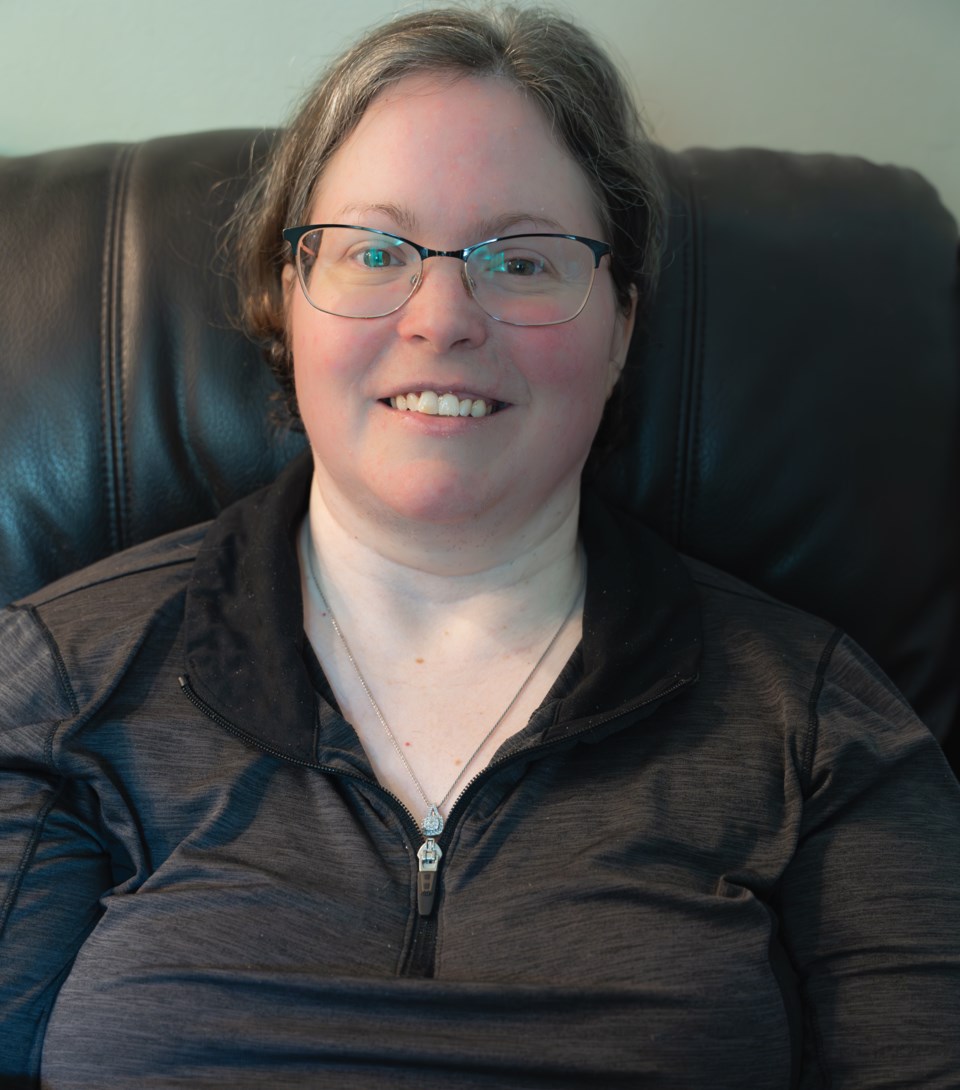The Sarnia Journal has partnered with local photographer Art Connolly to feature his captivating “Humans of Sarnia” series as he delves into the lives and experiences of everyday people in Sarnia. Follow his series on Instagram and Facebook
In a city known for its tight-knit community Sarah Roache's story stands out as a reminder of the personal battles faced by many. Living with multiple sclerosis (MS), Sarah's daily life is a testament to resilience and hope amidst the unpredictability of chronic illness.
Canada, unfortunately, has one of the highest rates of MS in the world. With approximately 90,000 Canadians living with the disease and an average of 12 new diagnoses each day, MS is a significant health concern. It’s a chronic autoimmune disease that impacts the central nervous system, affecting everything from vision and memory to balance and mobility. Symptoms can range from extreme fatigue and lack of coordination to cognitive impairment and mood changes. Although there is no cure yet, researchers are making strides in understanding the causes and potential treatments for this complex condition.
Sarah’s journey with MS began in 2008. She recounted her initial symptoms, which started with a troubling numbness on the left side of her face. Initially, she was told at the Sarnia hospital that she had Bell’s Palsy, a condition causing temporary facial weakness. However, when her symptoms persisted, her doctor referred her to a neurologist in London. It was there, after an MRI, that Sarah received the definitive diagnosis of MS.
In 2019, Sarah’s diagnosis evolved from relapsing-remitting multiple sclerosis (RRMS) to secondary progressive multiple sclerosis (SPMS). This progression brought new challenges and adjustments to her daily life. Sarah now requires the assistance of a Personal Support Worker who visits three times a week to help with essential tasks like showering and meal preparation.
The uncertainty of MS has become a defining aspect of Sarah’s life. “The hardest part is not knowing what kind of day I’m going to have,” she explained. “It’s almost hour to hour. A good day means I can walk without difficulty and my memory is sharp. But on a bad day, I might struggle with short-term memory issues or face other challenges like bowel and urinary problems.” This variability means that every day brings its own set of obstacles and adjustments.
Adding to the complexity is the fact that Sarnia lacks a neurologist specializing in MS. Sarah must travel to London once a year for her appointments—a financial burden that has added stress to her and her family. “We’re hopeful that we can claim some of these expenses on our taxes now,” she noted. Despite the challenges, Sarah and her husband Victor have managed to navigate these obstacles together. With Sarah’s diagnosis impacting her ability to work, Victor has become the sole provider for their household.
Sarah is currently on a medication called Fampyra, which is intended to help improve walking for MS patients. However, her latest MRI showed no progression of the disease, and frustratingly, this meant that no new medication was prescribed. “On one hand, it’s good that the disease isn’t progressing. But on the other, it’s frustrating when there’s no new treatment to help manage my symptoms better.”
Staying informed is crucial for Sarah, and she diligently follows updates through the MS Canada website ( www.mscanada.com ) and various Facebook groups. “MS is called the ‘snowflake disease’ because everyone’s experience is unique,” she said, showing off her snowflake tattoo—a personal symbol of her fight against the disease.
Sarah’s support system is vital to her well-being. Her family, including Victor, and a few close friends provide emotional and practical support. Locally, she connects with other MS patients through a Facebook group. “But I do wish there was more local support. The MS clinic in Sarnia closed about five years ago, and I’d really like to know why.”
Recently, Sarah discovered a potentially transformative treatment called Haematopoietic Stem Cell Transplantation (HSCT). This intense chemotherapy treatment aims to halt MS damage by essentially rebooting the immune system using the patient’s own stem cells. Although HSCT is not a cure, it offers a chance to regain a more active life. Unfortunately, the procedure is only available in Mexico and is not covered by Ontario Health Insurance Plan (OHIP), adding another layer of financial burden. The procedure is also available in Ottawa but unfortunately, she does not meet the criteria for the Ottawa facility.
To help cover the costs of HSCT, Sarah’s family has launched a GoFundMe campaign https://gofund.me/6ac53649). “The procedure shows promise, and we’re hopeful that with community support, we can make this treatment a reality,” Sarah said. For those interested in supporting Sarah, more information about the procedure and its success rate can be found through various online resources.
Sarah Roache’s story is a powerful illustration of the daily realities faced by those living with MS. Through her courage, determination, and the support of her loved ones, she continues to navigate the challenges of her condition with grace and hope. Her journey underscores the importance of community support and the ongoing need for resources and understanding in the fight against multiple sclerosis.
“Humans of Sarnia” founder Art Connolly is a man fuelled by curiosity and a passion for connecting with people in Sarnia. Inspired by the renowned “Humans of New York” series, with a camera in hand, he captures the very essence of the individuals he encounters, preserving their stories through his lens.
